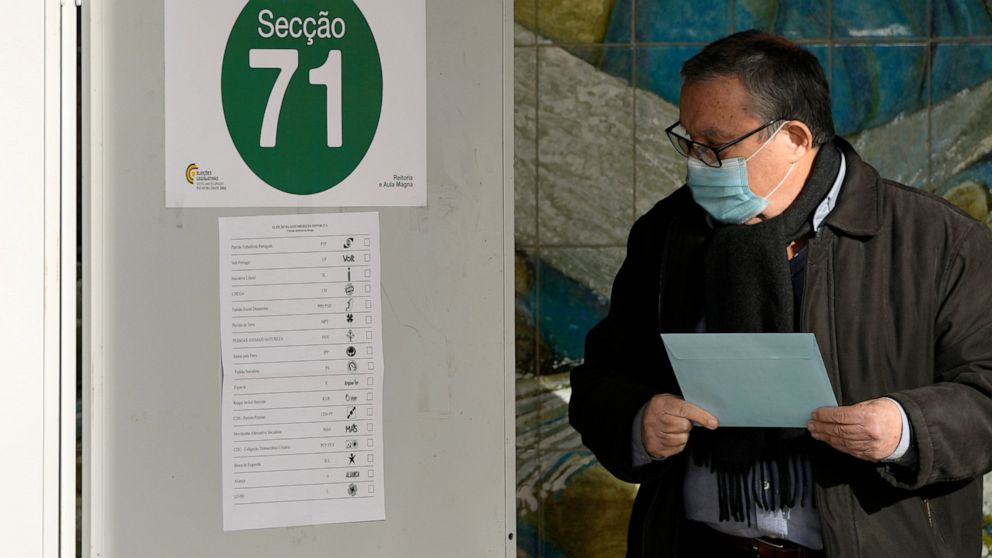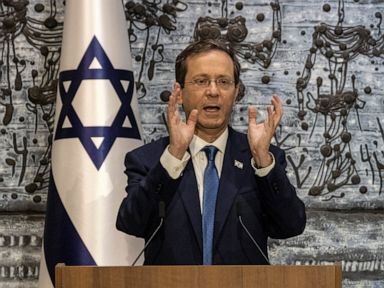
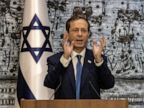

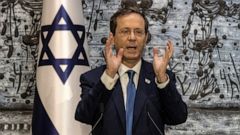
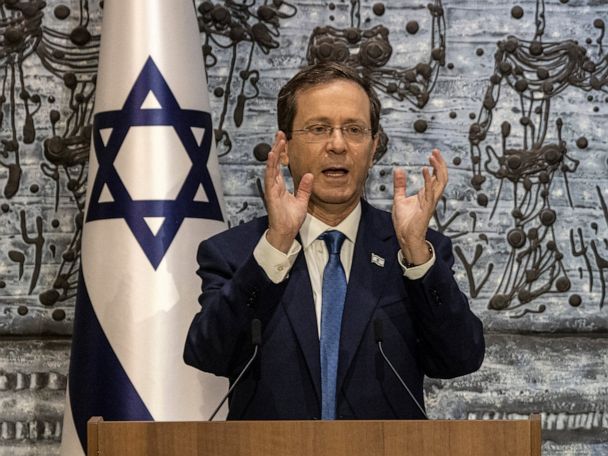
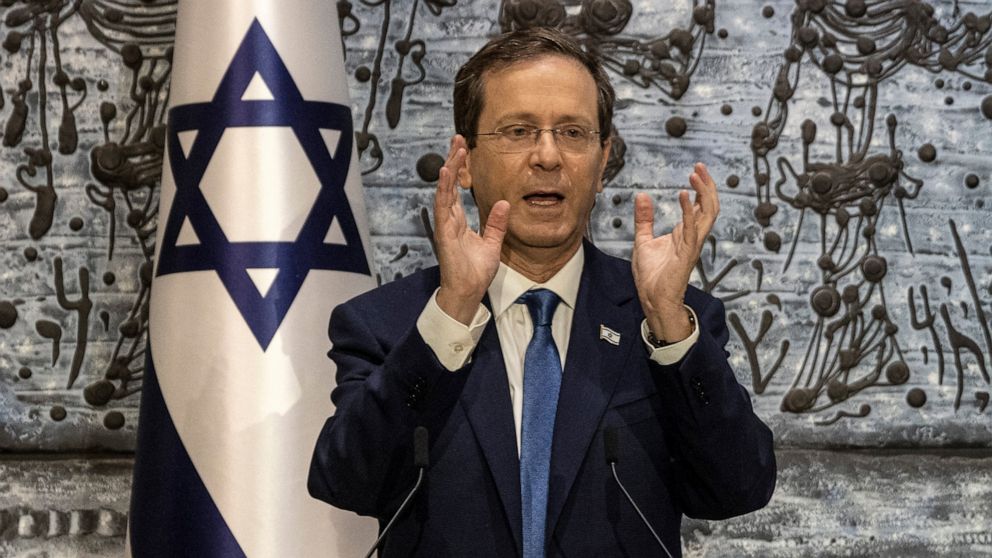

Israel’s figurehead president has met the powerful crown prince of Abu Dhabi on the first official visit to the United Arab Emirates by the country’s head of state
DUBAI, United Arab Emirates — Israel’s figurehead president met the powerful crown prince of Abu Dhabi on Sunday on the first official visit to the United Arab Emirates by the country’s head of state, the latest sign of deepening ties between the two nations as tensions rise in the region.
The UAE and Israel normalized relations in the fall of 2020, part of a series of U.S.-brokered diplomatic deals between Israel and Arab states that had long avoided formal relations with Israel over its decades-old conflict with the Palestinians.
President Isaac Herzog met top Emirati officials including Crown Prince Sheikh Mohammed bin Zayed Al Nahyan, the de facto Emirati leader. The UAE’s state-run WAM news agency described a royal welcome for the Israeli leader at the palace, with the Israeli national anthem blaring and canons booming.
Herzog was also expected to meet members of the country’s small but growing Jewish expat community and on Monday to visit Expo 2020, the world’s fair in Dubai, where Israel has hosted a series of events at its national pavilion.
The president plays a largely ceremonial role as a national unifier in Israel’s parliamentary system, where the prime minister holds the most power. Israeli Prime Minister Naftali Bennett last month made his first official visit to the Gulf Arab sheikhdom and discussed strengthening relations on a number of fronts with Sheikh Mohammed.
Media coverage of both Herzog and Bennett’s trips to the autocratic UAE has been tightly controlled. Emirati authorities have not invited journalists to the palace where meetings are held, nor planned any press conferences. News from the visits surfaces only through careful statements on state-run media. Israel, a parliamentary democracy, has not brought Israel-based journalists to join the trips of either leader.
Shortly before takeoff, Herzog said he sought to bring on his visit “the message of peace from Israel to the United Arab Emirates, and to all the peoples in the region.”
The show of Israel-Emirati cooperation comes at a delicate time for the Middle East.
Fighting in Yemen’s seven-year civil war has intensified, widening to reach Emirati soil for the first time this month. The Iran-backed Houthi rebels fighting the Saudi-led coalition claimed aerial attacks against Abu Dhabi – one that killed three workers at an industrial area and another that was intercepted and scattered missile shards over the capital.
The assaults shocked residents, puncturing the sense of safety pervasive in the region’s globalized business hub. The Houthis have threatened further strikes this week.
Meanwhile, negotiations in Vienna between world powers and Iran to curb Tehran’s rapidly expanding nuclear program paused on Friday, with European officials saying the talks had approached “the final stage.” Former President Donald Trump pulled the U.S. out of the landmark nuclear deal nearly four years ago in a move welcomed by Israel and America’s Gulf Arab allies and reimposed harsh sanctions on Iran.
Shared enmity of Iran and mutual fears over its nuclear program helped push the UAE and Israel to formalize relations after years of clandestine ties.
Palestinian leaders have condemned the normalization deal as a betrayal of their cause for statehood.

